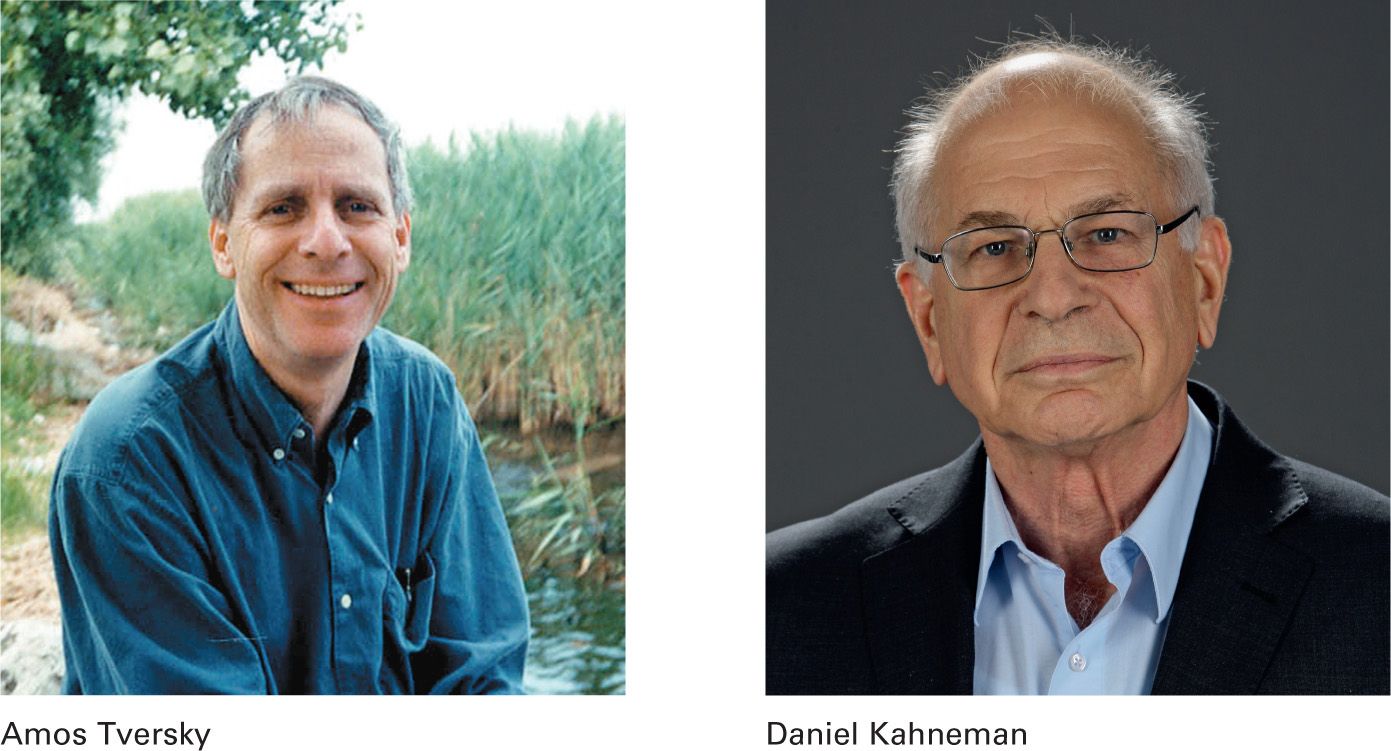
Daniel Kahneman was awarded the Nobel Prize in Economic Sciences in 2002 for the groundbreaking research on heuristics that we partially describe here. His collaborator Amos Tversky would surely have shared the Nobel Prize with him, but he died in 1996, and Nobel committees are prohibited from awarding prizes posthumously. As we will learn, Kahneman and Tversky’s research demonstrated that people often make decisions using heuristics rather than complete rational analysis. Kahneman’s prize was in Economic Sciences because this research had important applications to economic theory and because there is no Nobel Prize awarded in psychological sciences. Incidentally, Kahneman was the first person with a doctorate from a psychology department to win a Nobel Prize. Other Nobel Prize winners that we have mentioned (Roger Sperry, David Hubel, and Torsten Wiesel) all received their degrees in other disciplines such as zoology and medicine. Herbert Simon, another cognitive psychologist, who won the Nobel Prize in Economic Sciences in 1978, received his degree in political science.
Courtesy of Barbara Tversky
Andreas Rentz/Getty Images for Burda Media
Andreas Rentz/Getty Images for Burda Media